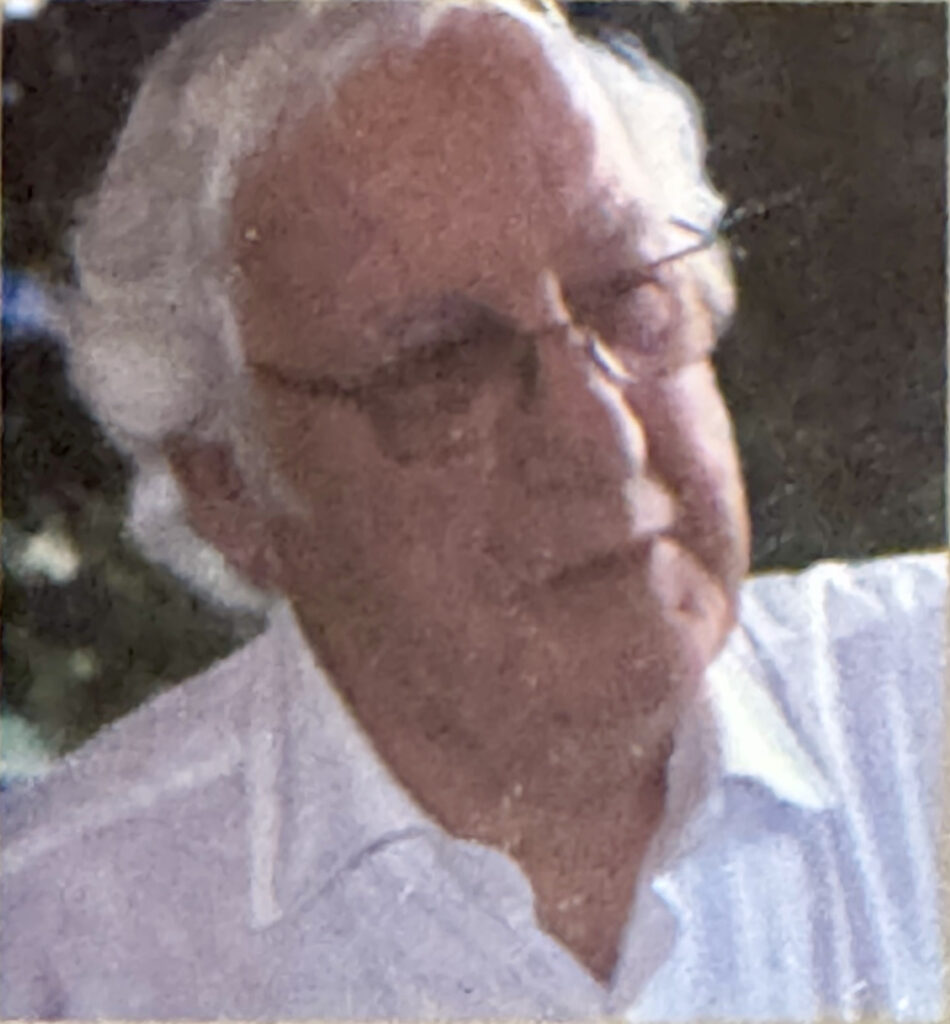By Ray Bilderback
Alice had dusted the living room twice that morning and was giving up. Her husband, hoping to catch the predicted rain, was planting winter wheat in the adjacent field. Every time he went by on his rounds, a perverse wind dusted the house.
Alice was in a hurry. Twice a month she went grocery shopping with Esther and it was her turn to drive. Esther would be waiting in her neat kitchen, all decked out in her go-to-town outfit: gloves, nylons, flowered blue dress, hat and handbag to match.
Alice had purposefully left their new car in the garage until the last minute to keep it shiny. A new car! Tongues would wag in some quarters, “The Thompsons are showing off again. Last year it was a fancy new combine and now a new car. Well!”
Of course, the combine wasn’t new or fancy. Oh, how they had scrimped and saved to get it. When you are a wheat farmer’s wife, you have one paycheck a year. This year, when the wheat was sold, they had decided to buy a new car.
New? “New” was rarely in her husband’s vocabulary. But there were compelling reasons to trade in the old car; it had bad brakes and lousy headlights, and just possibly quitting on her husband one night might have helped. (He had to walk home in the rain. He didn’t mind the rain, but the walk rankled.)
The new car had safety glass, improved brakes, good headlights, and the gas tank was over the rear wheels, not practically in your lap.
Out the kitchen door in her own careful outfit, Alice encountered another problem: their milk cow was on the wrong side of the fence eating the flowers she had planted. Her husband in his haste had left the gate open. She shooed the cow into the pasture and closed the gate but not without snagging her nylons.
The day was not going well.
It was early September 1937, and the talk at the Mode Café was all about Amelia Earhart’s disappearance in the far reaches of the Pacific Ocean as well as some speculation on how the Social Security Act, just approved by the Supreme Court, would affect farm families. The Yankees seemed likely to win the World Series again, and we were slowly but surely working our way out of the Great Depression.
The ladies lingered over the Blue Plate Special and opted for seconds on coffee. They agreed it was such a pleasure to eat something somebody else had prepared! Finally, Esther ordered maple nut ice cream and Alice had a root beer float.
The shopping went well. With the help of the grocery boy, they loaded boxes and paper bags on the back seat and floor of the new car. Last stop on their schedule was a trip to the commercial meat locker. Before the war, home freezers were rare and very expensive. Most families rented space in a commercial locker.
The new car had a light that lit up in the unlikely event that your brakes failed. A half mile from Alice’s house there was a small hill, and at the bottom of the hill the road ended in a T. Go left to Esther’s house, right to Alice’s, and straight ahead was the neighbor’s pasture.
Just over the hill, Alice touched the brakes to eat off a little speed. The warning light came on. No brakes. No brakes?! Used to emergencies in the Model A and an assortment of wheat trucks over the years, Alice mumbled something unladylike, cramped the wheel and grabbed the emergency brake all at the same time. Spewing gravel every which way, they slid sideways down the hill, ending in the shallow ditch beside the neighbor’s fence.
Once in Esther’s yard, they inspected the new car for damage. There was none, but Alice, upon looking in the back seat, said, “Esther, come see this.” Torn paper bags and upset boxes littered the floor. The ladies, still in their go-to-town finery, put empty boxes on the ground and began sorting cans, bottles, oranges and apples. Alice, still shaking from their ordeal, asked, “Esther, did you get Wheaties this time? And how many cans of tomato soup did you buy? I thought I ordered four, but now I’m not sure.”
Ray Bilderback, creator of the Reuben Braddock novels, was born and raised in the Sierra foothills of California. He served in the U.S. Navy Seabees during the Korean War and taught for many years in the west. He makes his home in the mountains of eastern Washington with his archeologist wife, Madilane Perry. “In the 1930s and 1940s, where I lived, we still used horses and hand tools, canned and preserved what we grew or raised, lit our kerosene lanterns, stoked our woodstoves. In my writing, I draw from those times like water from a sweet well.”

